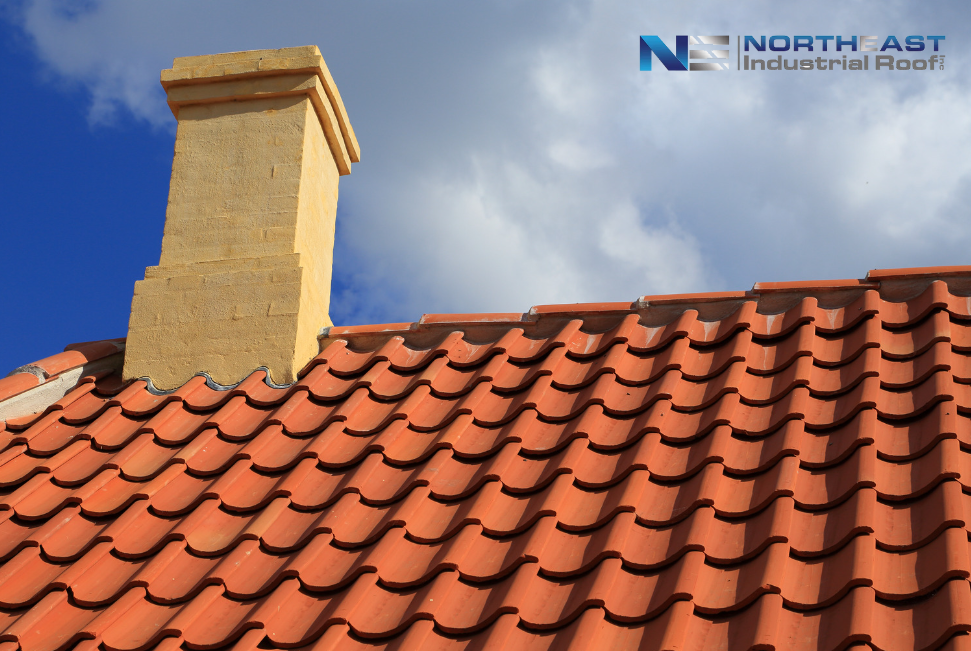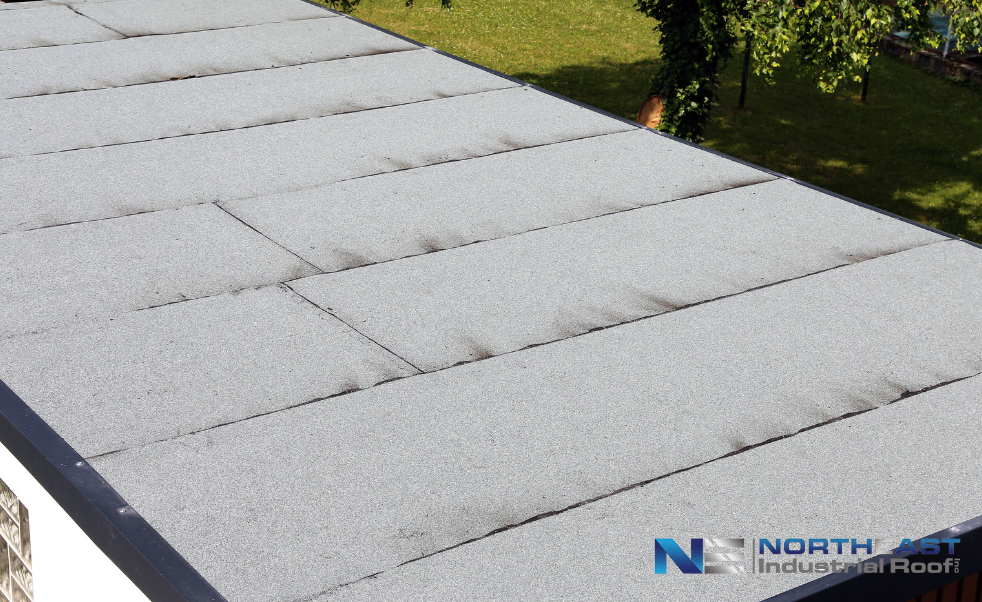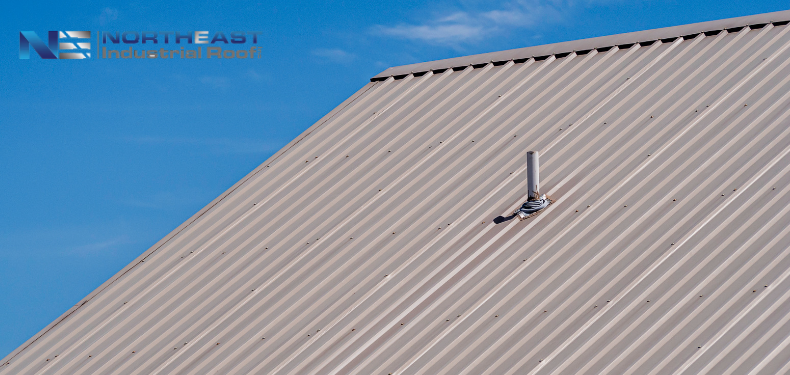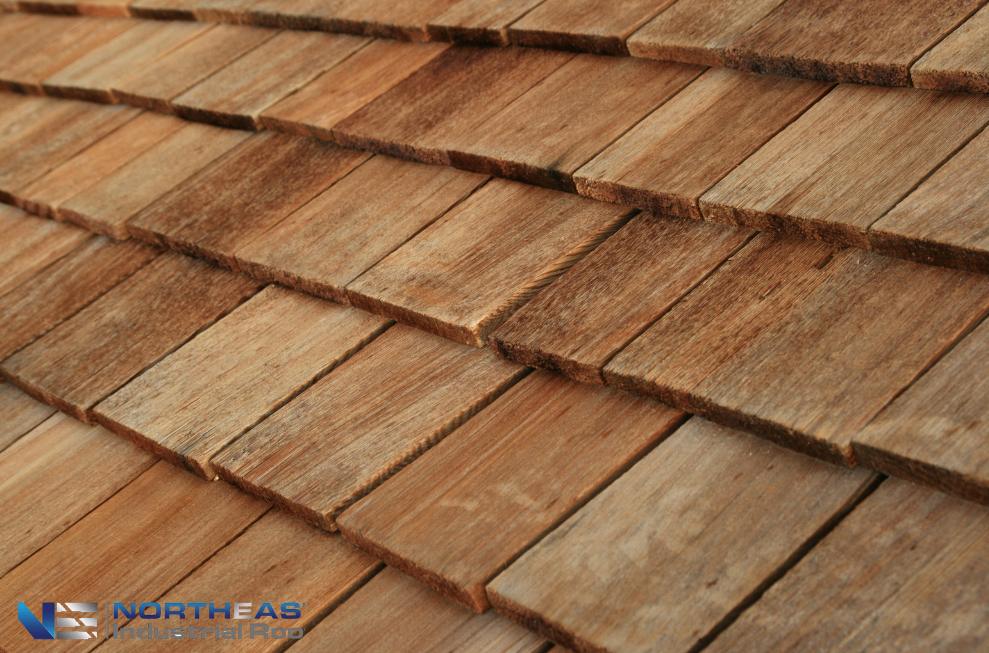How Roof-Mounted Equipment Can Affect Your Roof
August 19, 2021
Installing certain equipment on your rooftop can go a long way toward saving space and streamlining operations in your commercial or industrial facility. But the choice to mount equipment there can have a direct impact on your roof’s integrity.
Whether it’s a water storage vessel, an HVAC system, or a solar array, it’s important to know how the equipment you place on your rooftop will affect the structure and change maintenance needs. We’re here to walk you through the basics of common rooftop installations and what factors you’ll need to account for in your planning.
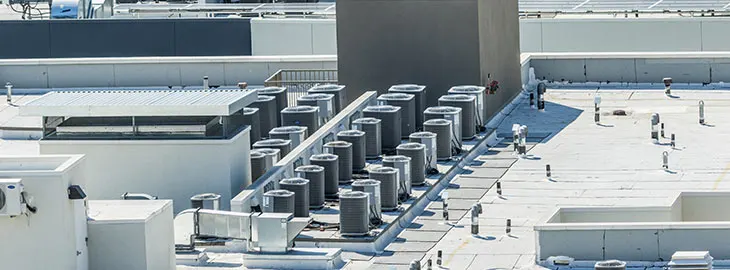
Water Collection and Storage
Extra Hefty
This all can amount to thousands of pounds that your roof will need to be strong enough to hold for the lifetime of the water equipment. If your roof is aging, has weak spots, or just doesn’t have the fundamental structure necessary to support such weight, you could be looking at serious damage if and when the roof succumbs to the pressure.
Little Leaks, Big Problems
The second complicating factor is the risk of leaks. A faulty water tank or distribution pipe can create a steady stream of water pooling on your roof. It’s possible for this to create water damage that rots away your roofing material, causes mold growth, or exposes electrical equipment to moisture.
Any of these issues can have expensive and even dangerous consequences. This is why it is critical for your rooftop water systems to receive thorough and regular maintenance, ensuring that leaks are prevented or caught before they become a major problem.
HVAC Units
As with water tanks, HVAC units also present the risk of leaks via their supply lines. Additional moisture hazards are created by the condensation that results from their cooling process. If the unit is not adequately ventilated, the condensation that forms is likely to collect. Proper installation and maintenance is needed to prevent leaks or condensation that can compromise the roof’s envelope.
Keep in mind that leaks can result from HVAC power line installation as well. If the installer needs to drill holes through the roof to run electrical lines through to the equipment, it must be sealed correctly to guard against rainfall and snowmelt leaking through.
Shifty and Shaky
The active machinery of HVAC units introduces vibrational stress to the mounting system and, thus, your rooftop. Even when running normally, HVAC systems produce fairly strong vibrations. Any imbalance in the unit’s fan system can increase these vibrations and cause an uneven distribution of the force they create.
This extra stress can weaken your roof structure over time, and even create openings in your roof’s protective seal. Your HVAC will need regular maintenance to check for such imbalances and repair them quickly.
Solar Panels
Solar panel systems thankfully don’t utilize water as a part of their function, so their likelihood of causing water damage is much lower than with water tanks or HVAC units. However, there is still a leak risk present if the mounting racks are not correctly installed.
Improper mounting can leave unsealed penetrations in your rooftop, which leave open entry for outside moisture. And because commercial solar systems tend to span large areas, you can end up with many holes created across your rooftop to accommodate the mounting.
Water penetration isn’t the only problem that can arise from these vulnerabilities. They can also let in debris, as well as simple airflow that reduces your building’s energy efficiency. To prevent these issues from developing, take care to choose licensed, well-reviewed solar contractors who have experience installing on commercial rooftops.
General Equipment-Related Weather Damage
No matter what type of equipment is installed on your roof, it is going to be exposed to wind loads. Here in Boston, we deal with an average wind speed of over 12 mph throughout the year, making our city the windiest in the nation. This means that rooftops with mounted equipment are subjected to a significant amount of extra stress.
As wind pushes against equipment, the mounting components are pulled against the rooftop. If the force is strong enough, it can actually cause the mounting to break away, or the roof membrane itself to tear. It’s possible to lose entire portions of the roof covering this way. The best method for preventing this is to ensure that your mounting systems are strong enough to stand strong against high winds, and that the surrounding seams of your roof membrane are securely sealed.
Keep Your Commercial Roof Sound and Secure
If you’re thinking of adding equipment to your facility’s rooftop, it’s important to have a professional commercial or industrial roofer present during installation. Their expertise can help ensure that the installation is done without creating vulnerabilities in the rooftop, protecting your investment and warding off the need for future repairs.
Northeast Industrial Roof is one of the leading providers of Boston roofing services for commercial and industrial businesses. We can help you oversee equipment installation and maintenance routines to safeguard your rooftop, as well as perform inspections to check if your equipment has caused damage. Our team is even available for 24/7 emergency service in case of serious problems that can’t wait.

